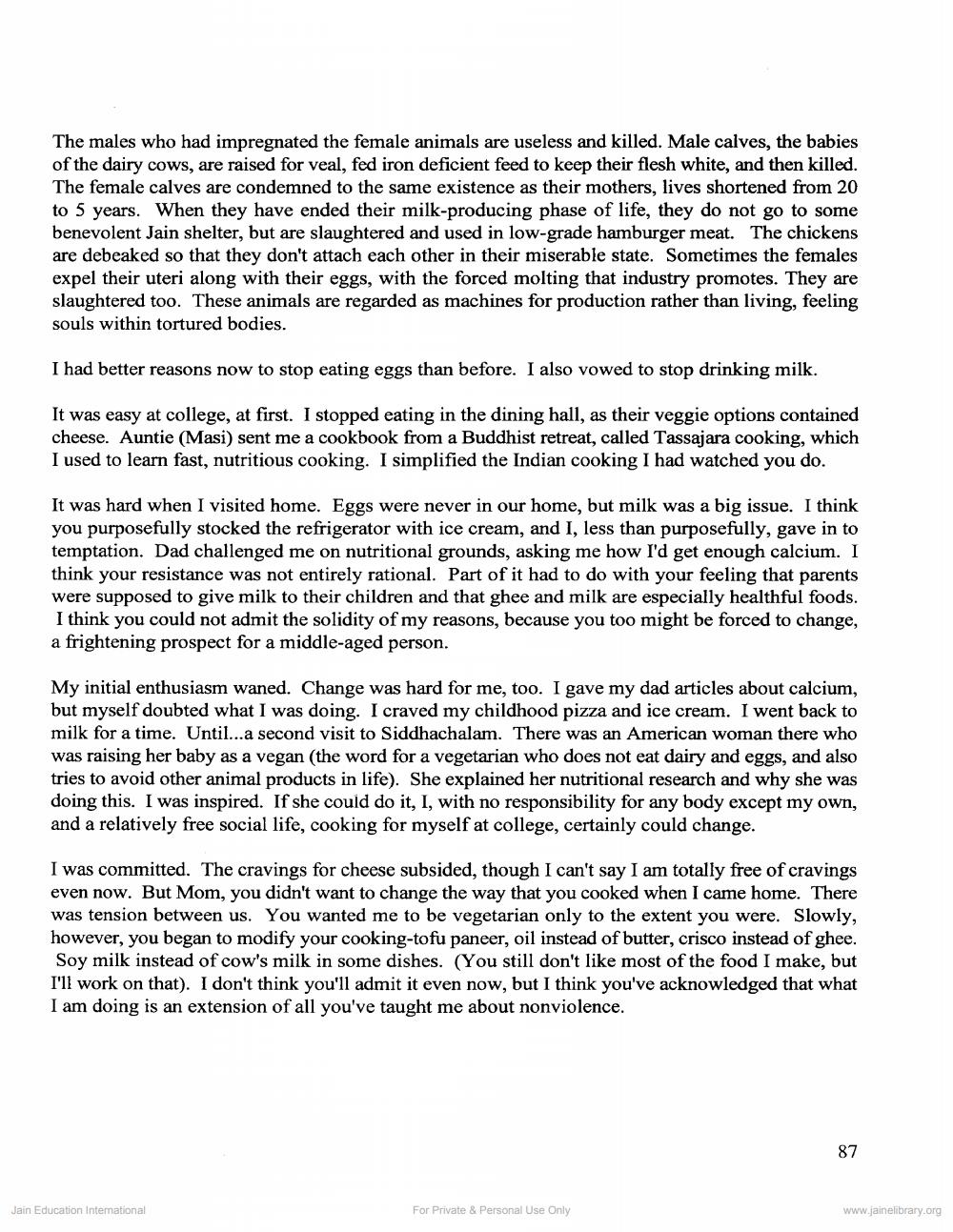________________
The males who had impregnated the female animals are useless and killed. Male calves, the babies of the dairy cows, are raised for veal, fed iron deficient feed to keep their flesh white, and then killed. The female calves are condemned to the same existence as their mothers, lives shortened from 20 to 5 years. When they have ended their milk-producing phase of life, they do not go to some benevolent Jain shelter, but are slaughtered and used in low-grade hamburger meat. The chickens are debeaked so that they don't attach each other in their miserable state. Sometimes the females expel their uteri along with their eggs, with the forced molting that industry promotes. They are slaughtered too. These animals are regarded as machines for production rather than living, feeling souls within tortured bodies.
I had better reasons now to stop eating eggs than before. I also vowed to stop drinking milk.
It was easy at college, at first. I stopped eating in the dining hall, as their veggie options contained cheese. Auntie (Masi) sent me a cookbook from a Buddhist retreat, called Tassajara cooking, which I used to learn fast, nutritious cooking. I simplified the Indian cooking I had watched you do.
It was hard when I visited home. Eggs were never in our home, but milk was a big issue. I think you purposefully stocked the refrigerator with ice cream, and I, less than purposefully, gave in to temptation. Dad challenged me on nutritional grounds, asking me how I'd get enough calcium. I think your resistance was not entirely rational. Part of it had to do with your feeling that parents were supposed to give milk to their children and that ghee and milk are especially healthful foods. I think you could not admit the solidity of my reasons, because you too might be forced to change, a frightening prospect for a middle-aged person.
My initial enthusiasm waned. Change was hard for me, too. I gave my dad articles about calcium, but myself doubted what I was doing. I craved my childhood pizza and ice cream. I went back to milk for a time. Until...a second visit to Siddhachalam. There was an American woman there who was raising her baby as a vegan (the word for a vegetarian who does not eat dairy and eggs, and also tries to avoid other animal products in life). She explained her nutritional research and why she was doing this. I was inspired. If she could do it, I, with no responsibility for any body except my own, and a relatively free social life, cooking for myself at college, certainly could change.
I was committed. The cravings for cheese subsided, though I can't say I am totally free of cravings even now. But Mom, you didn't want to change the way that you cooked when I came home. There was tension between us. You wanted me to be vegetarian only to the extent you were. Slowly, however, you began to modify your cooking-tofu paneer, oil instead of butter, crisco instead of ghee. Soy milk instead of cow's milk in some dishes. (You still don't like most of the food I make, but I'll work on that). I don't think you'll admit it even now, but I think you've acknowledged that what I am doing is an extension of all you've taught me about nonviolence.
Jain Education International
For Private & Personal Use Only
87
www.jainelibrary.org




